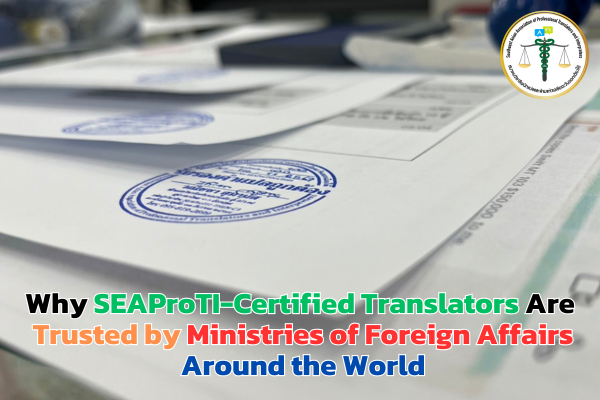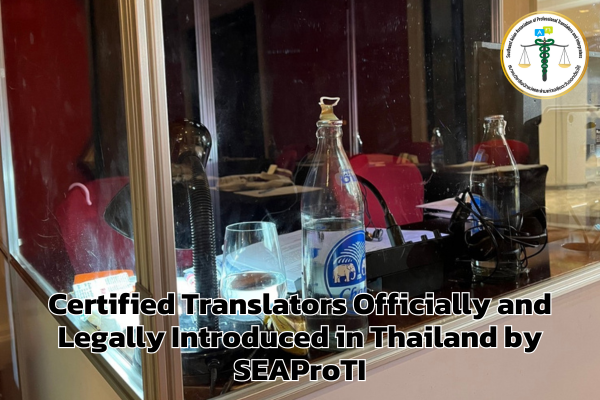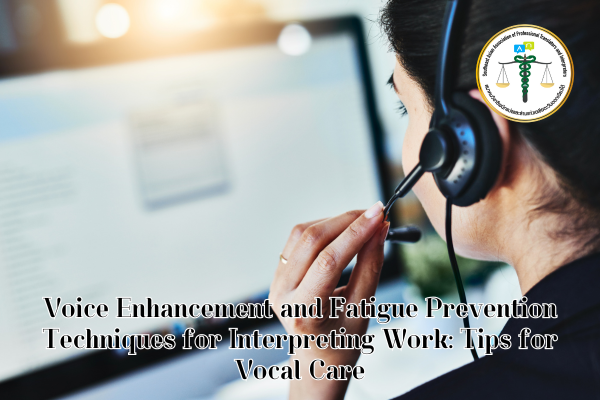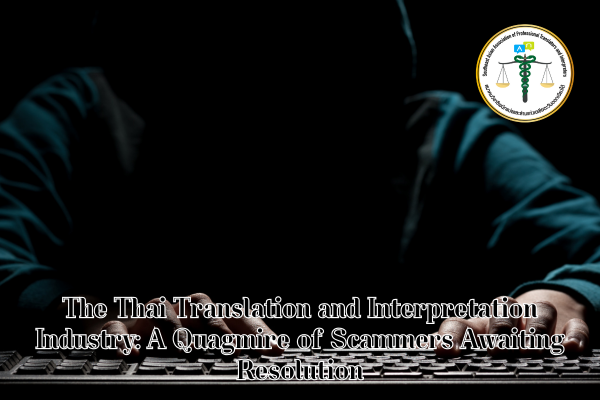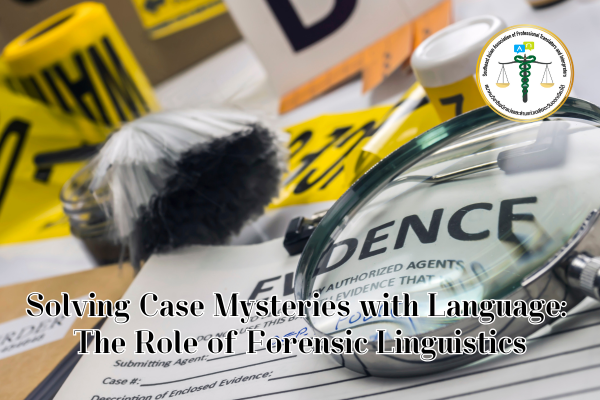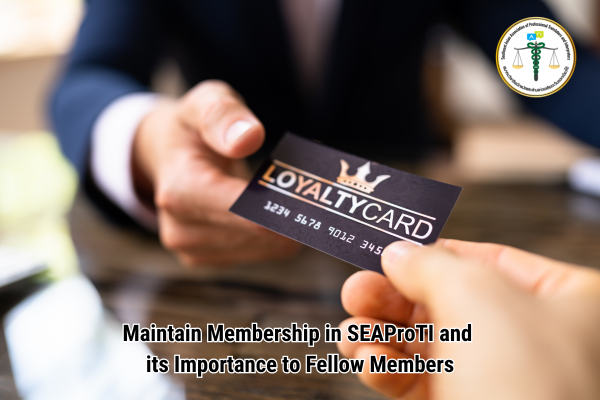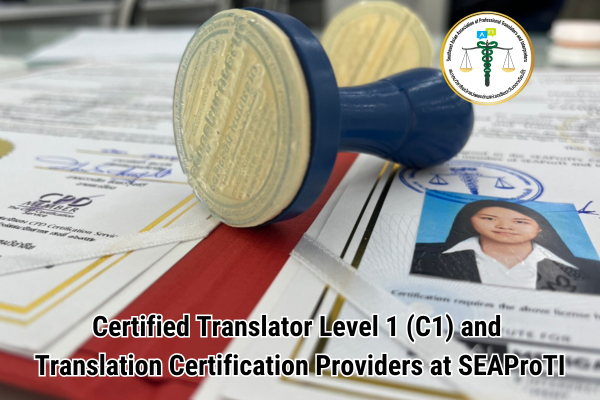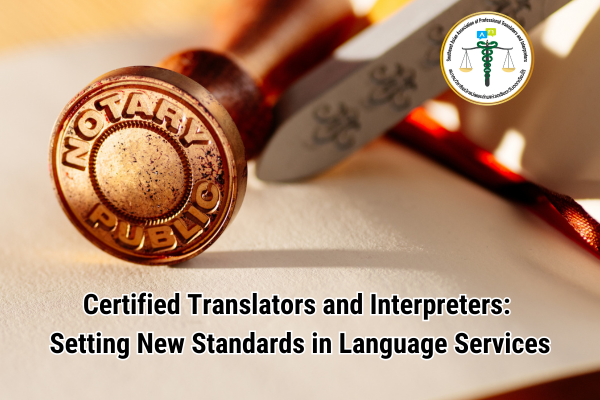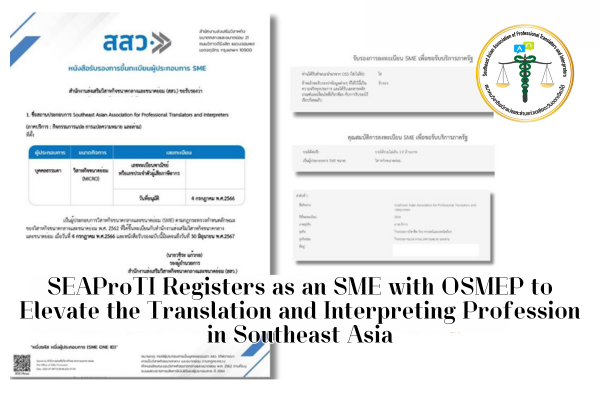In today’s interconnected world, accurate and reliable translation is critical, particularly in diplomatic and international relations. The Ministries of Foreign Affairs (MFAs) of various countries handle sensitive documents, ranging from treaties and trade agreements to official communications and diplomatic correspondence. Trust in translators is paramount, and this is where the Southeast Asian Association of Professional Translators and Interpreters (SEAProTI) comes into play. SEAProTI-certified translators are increasingly being relied upon by MFAs globally, and this trust stems from several key factors.
1. Rigorous Certification Standards
The foundation of SEAProTI’s reputation lies in its robust certification process. Unlike many other certification programs, SEAProTI’s evaluation is multifaceted, including both theoretical and practical components. Candidates must pass stringent exams that test their linguistic proficiency, subject matter expertise, and ethical understanding.
The certification process typically involves:
- Written Exams: Assessing linguistic skills, comprehension of complex legal, diplomatic, and technical texts.
- Oral Exams: Evaluating real-time interpretation skills, a crucial aspect for diplomatic settings.
- Practical Work Samples: Translators must submit verified work in various fields such as legal, medical, and technical domains, showcasing their ability to handle high-stakes documents.
This rigorous process ensures that only the most qualified professionals receive SEAProTI certification, setting them apart as reliable experts in their field.
2. Expertise in Legal and Diplomatic Terminology
Ministries of Foreign Affairs frequently deal with legal and diplomatic documents that require precise translation. A single mistranslation could alter the meaning of an agreement or lead to misunderstandings between nations. SEAProTI-certified translators are well-versed in specialized terminology, including:
- Legalese and Contract Law: They understand the nuances of legal terminology, enabling them to translate contracts, treaties, and legal agreements with precision.
- Diplomatic Language: SEAProTI-certified translators are trained to handle the formal tone and nuanced language typical in diplomatic communications, such as memoranda of understanding (MOUs), communiqués, and official statements.
- Multilingual Expertise in ASEAN and Beyond: SEAProTI professionals often specialize in regional languages, which is crucial for MFAs dealing with multilateral agreements involving multiple ASEAN countries.
3. Commitment to Confidentiality and Ethics
Confidentiality is a cornerstone of diplomatic work. SEAProTI-certified translators are bound by a strict code of ethics, which emphasizes the protection of sensitive information. Ministries of Foreign Affairs value this commitment as they frequently deal with classified materials.
Key ethical commitments include:
- Non-Disclosure Agreements (NDAs): SEAProTI-certified translators are required to sign NDAs for each project, ensuring legal accountability.
- Adherence to International Standards: SEAProTI aligns its ethical framework with global best practices, such as those outlined by the International Federation of Translators (FIT) and the Association Internationale des Interprètes de Conférence (AIIC).
- Impartiality and Accuracy: Translators are trained to remain neutral, avoiding any bias or personal interpretation that could compromise the document’s integrity.
4. Recognition by International Bodies
One of the distinguishing features of SEAProTI is its widespread recognition by international bodies and governments. SEAProTI certifications are often acknowledged as equivalent to or even superior to those provided by other global organizations. This recognition bolsters the trust that Ministries of Foreign Affairs place in SEAProTI-certified translators.
For instance:
- United Nations and ASEAN: SEAProTI translators have worked in high-profile international organizations, including UN agencies and ASEAN summits, where precision and reliability are non-negotiable.
- Collaborations with Foreign Embassies: SEAProTI-certified translators are frequently called upon to handle communications between foreign embassies and their host countries, demonstrating their reliability and professionalism in real-world scenarios.
5. Continuous Professional Development
The field of translation is constantly evolving, with new terminology and practices emerging regularly. SEAProTI ensures its certified translators remain at the forefront of the industry through continuous professional development (CPD). This includes:
- Workshops and Training: Translators undergo regular training in new legal frameworks, geopolitical developments, and advanced linguistic techniques.
- Networking Opportunities: SEAProTI organizes conferences and seminars, allowing translators to exchange insights and learn from leading experts in the field.
- Access to Resources: Members benefit from an extensive library of glossaries, translation tools, and case studies, helping them stay updated and improve their skills.
Ministries of Foreign Affairs appreciate this commitment to lifelong learning, as it guarantees that the translators they work with are not only competent but also current.
6. Flexibility and Cultural Sensitivity
In diplomacy, cultural nuances can be as important as linguistic accuracy. SEAProTI-certified translators are trained to be culturally sensitive, ensuring that translations are appropriate and effective in different cultural contexts.
For example:
- Tailoring Language to Context: Whether translating a diplomatic speech or a legal contract, SEAProTI translators adapt their language to suit the specific audience and purpose.
- Avoiding Cultural Pitfalls: Translators are aware of cultural taboos and differences, ensuring their work respects the customs and expectations of all parties involved.
This flexibility makes SEAProTI-certified translators invaluable assets in the delicate world of international relations.
7. Proven Track Record in High-Stakes Scenarios
SEAProTI-certified translators have consistently demonstrated their ability to perform under pressure in high-stakes environments. They have been entrusted with translating critical documents for major international events, including:
- Peace Negotiations: Where accuracy and confidentiality are paramount.
- Trade Agreements: Requiring precise legal language to avoid disputes.
- Crisis Communications: Translating urgent messages during emergencies or conflicts.
Their proven track record reassures Ministries of Foreign Affairs that they can rely on SEAProTI-certified translators for even the most sensitive and high-profile tasks.
8. Endorsement from Reputable Institutions
SEAProTI’s reputation is further solidified by endorsements from reputable institutions. Many Ministries of Foreign Affairs have publicly acknowledged the quality of SEAProTI’s services. These endorsements highlight the association’s commitment to excellence and its role in fostering international cooperation through accurate and reliable translation.
Conclusion: A Pillar of Trust in International Relations
The trust that Ministries of Foreign Affairs place in SEAProTI-certified translators is no coincidence. It is the result of rigorous certification standards, specialized expertise, a strong ethical framework, and a commitment to continuous professional development. By consistently delivering high-quality, culturally sensitive, and accurate translations, SEAProTI-certified professionals play a crucial role in facilitating effective communication on the global stage.
In an era where diplomacy and international cooperation are more critical than ever, the importance of trusted translation services cannot be overstated. SEAProTI continues to set the benchmark for excellence, ensuring that its certified translators remain the preferred choice for Ministries of Foreign Affairs around the world.
About SEAProTI:
The Southeast Asian Association of Professional Translators and Interpreters (SEAProTI) has officially announced the criteria and qualifications for individuals to register as “Certified Translators,” “Translation Certification Providers,” and “Certified Interpreters” under the association’s regulations. These guidelines are detailed in Sections 9 and 10 of the Royal Thai Government Gazette, issued by the Secretariat of the Cabinet under the Office of the Prime Minister of the Kingdom of Thailand, dated July 25, 2024, Volume 141, Part 66 Ng, Page 100.
To read the full publication, visit: the Royal Thai Government Gazette


